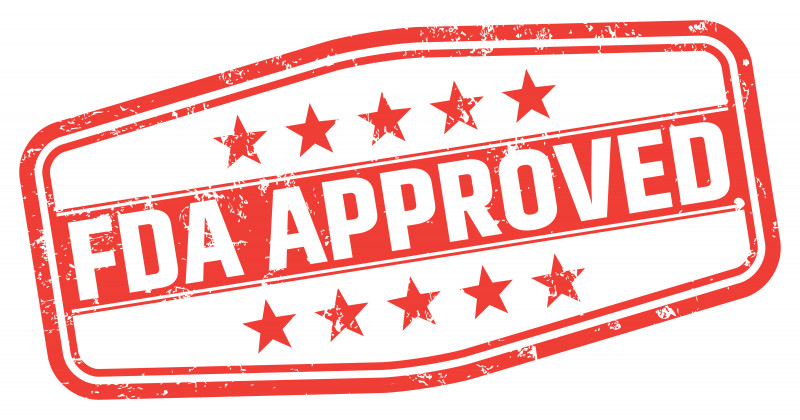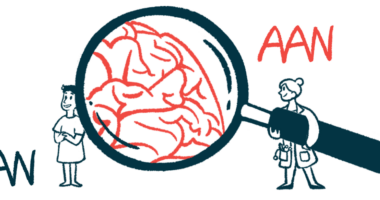FDA Approves Aduhelm, First Targeted Alzheimer’s Therapy

deepstock/Shutterstock
For the first time in almost 18 years, the U.S. Food and Drug Administration (FDA) has approved a new treatment — Aduhelm, also known as aducanumab — for Alzheimer’s disease, and a first targeted treatment for patients.
With this approval, Aduhelm becomes the first disease-modifying therapy for Alzheimer’s, and the first such therapy to come under FDA review. Disease-modifying therapies are those capable of slowing the progression of a disease itself, and not just its symptoms.
It is also the first new treatment for Alzheimer’s to be approved by the FDA since October 2003.
“This FDA drug approval ushers in a new era in Alzheimer’s treatment and research. History has shown us that approvals of the first drug in a new category invigorates the field, increases investments in new treatments and encourages greater innovation. We are hopeful and this is the beginning — both for this drug and for better treatments for Alzheimer’s,” Maria Carrillo, PhD, said in an email to Alzheimer’s News Today. Carrillo is chief science officer at the Alzheimer’s Association, which had called on the FDA to approve Aduhelm.
Following an initial titration period, the therapy is administered at a maintenance dose of 10 mg/kg, given as an intravenous infusion over about one hour every four weeks. According to its label, Aduhelm has been known to cause allergic reactions and ARIA-E (fluid accumulation in the brain), which should be monitored in people being treated.
Aduhelm carries a list price of around $56,000 a year as a maintenance treatment, Biogen reported, and support service coordinators are available to assist patients and their caregivers or family members with the treatment and its cost. These coordinators can be reached at 1-833-425-9360.
Biogen also established programs, including with CVS Health’s Project Health, to aid uninsured and underinsured Americans with cognitive screenings that could help in diagnosing Alzheimer’s, and is working with the Veterans Health Administration to set up a program supporting access there.
The FDA approved Aduhelm under the accelerated approval pathway, which is intended to provide earlier access to therapies that are expected to benefit patients with serious diseases, even if there is some residual uncertainty regarding that benefit.
“In determining that the application met the requirements for Accelerated Approval, the Agency concluded that the benefits of Aduhelm for patients with Alzheimer’s disease outweighed the risks of the therapy,” the FDA stated in a press release.
A tumultuous road to approval
Aduhelm, by Biogen and Eisai, is a human-made antibody designed to remove toxic clumps of the protein beta-amyloid, which are thought to drive the death of nerve cells (neurons) in the brains of people with Alzheimer’s.
The therapy’s development has been both unusual and tumultuous. Data from an early Phase 1b clinical trial called PRIME (NCT01677572) suggested that the treatment could safely slow cognitive decline, and indicated that it could remove beta-amyloid plaques as it was designed to do.
Biogen then launched two Phase 3 clinical trials, ENGAGE (NCT02477800) and EMERGE (NCT02484547), to evaluate the therapy’s safety and efficacy in early Alzheimer’s patients. Collectively, these trials enrolled nearly 3,300 people with relatively mild, or early stage, disease. (Its approval label carries no such restrictions, indicating it simply “for the treatment of Alzheimer’s disease.”)
When an interim analysis using data from these studies’ first 18 months indicated that Aduhelm, given as a monthly intravenous infusion, was unlikely to benefit patients, Biogen halted development of the investigational therapy in 2019.
After the trials were discontinued, however, an additional three months’ of data from ENGAGE and EMERGE became available. A new analysis using these findings showed that, contrary the interim analysis, EMERGE had actually met its primary efficacy endpoint (goal): relative to placebo, treatment with Aduhelm improved cognition and function, including memory, orientation, language, and activities of daily living.
ENGAGE did not meet its primary goal, but data suggested the therapy benefitted those given the high, up to 10 mg/kg, dose in the trial.
According to Carrillo, these results indicate that the medication would give patients more time in early stages of the disease, before progressing to more substantial dementia.
In an interview, Carrillo said that Aduhelm might enable patients “to do more with their families, to have more quality time with their families at a stage where they can still maintain their independence.”
Based on the new and favorable analysis, in conjunction with the positive results from earlier trials, Biogen and Eisai sought regulatory approval of Aduhelm in the U.S. The FDA put the therapy under priority review in August 2020, which was extended into June after Biogen submitted additional analyses.
Prior to that extension, an FDA advisory committee voted that the available clinical data did not support Aduhelm as an effective Alzheimer’s treatment. Notably, the advisory committee did not consider the possibility of accelerated approval.
Some experts also favored a new Phase 3 trial, testing the treatment at high dose prior to an approval decision.
“Based on our review of data presented publicly in December 2019,” neurologists with the Mayo Clinic and Stanford University wrote in a policy forum paper published in November 2020, “we do not agree with Biogen’s claim for efficacy. … Aducanumab’s efficacy as a treatment for the cognitive dysfunction in Alzheimer’s disease cannot be proven by clinical trials with divergent outcomes.”
“We are well-aware of the attention surrounding this approval. … With a treatment for a serious, life-threatening disease in the balance, it makes sense that so many people were following the outcome of this review,” the FDA stated, adding that the clinical trial data on the therapy “were highly complex and left residual uncertainties regarding clinical benefit.”
Accelerated approval
Although the clinical trials were not conclusive on the therapy’s effect on cognition and function, they clearly showed that Aduhelm can reduce levels of beta-amyloid plaques, according to the FDA. These data formed the basis for the FDA’s decision to give the therapy accelerated approval, which allows for earlier approval based on a surrogate endpoint as a marker, such as a laboratory measure (in this case, the reduction in beta-amyloid).
“Treatment with Aduhelm was clearly shown in all trials to substantially reduce amyloid beta plaques. This reduction in plaques is reasonably likely to result in clinical benefit,” the FDA wrote.
As a stipulation of the approval, the medication’s manufacturers will be required to conduct additional clinical testing to verify the anticipated clinical benefit, known as Phase 4 confirmatory trials. If data from these trials do not verify the anticipated benefit, the FDA could remove Aduhelm from the market.
“This approval is a victory for people living with Alzheimer’s and their families,” said Harry Johns, president and CEO of the Alzheimer’s Association. “It is a new day. This approval allows people living with Alzheimer’s more time to live better. For families it means being able to hold on to their loved ones longer. It is about reinvigorating scientists and companies in the fight against this scourge of a disease. It is about hope.”
Applications seeking approval of Aduhelm in the European Union and Japan are currently under review.
Biogen has initiated the open-label EMBARK trial (NCT04241068), which is testing Aduhelm at its high dose (up to 10 mg/kg) in people who previously took part in ENGAGE, EMERGE, or other aducanumab clinical trials that were discontinued in 2019.







